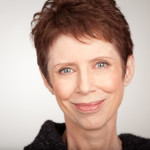THE GOLDILOCKS APPROACH TO OUR HEALTH KNOWLEDGE: HOW MUCH IS JUST RIGHT?

By Jessie Gruman
April 2, 2014
Most professional health care stakeholders believe that the more we patients and caregivers know about our health and diseases, the better our outcomes will be – and at a lower cost! They say we’ll be more likely to do what our clinicians advise and to protect ourselves from any bad advice or practices we pick up from the media and friends. When faced with the facts about our health risks and dangerous habits, they think we will rationally change our behaviors and correct our misunderstandings. Believing in the value of informed patients makes some sense, although benefiting from more information assumes that we will exercise considerable judgment about the quality of the knowledge we acquire.
As a patient, I want to know just what and how much I need to know in order to benefit from more health knowledge. At what point do I know enough to reap these hypothetical benefits?
Here’s the problem: Give me a couple of facts and buzzwords about my disease and I’ll fill in the blanks, confident that I have a pretty good understanding of what’s going on. You too? There is a well-documented tendency for us to overestimate how much we understand about the world and to underestimate the role of chance, as noted by Daniel Kahneman in Thinking Fast and Slow. A variant of this bias is the Dunning-Kruger effect: the idea that people who don’t know enough also don’t know enough to realize that they don’t know enough.
These tendencies are familiar to many clinicians whose patients have read a few articles they downloaded from the Web and arrive in the office ready for a high-level discussion of options or who already have a strong opinion about the best treatment for them, their child or their mom. The ensuing conversations can be richly educational or deeply frustrating for all involved.
A couple weeks ago I wrote about how many clinicians overestimate what we know about our health: our understanding of how our bodies work, where organs are located, the meaning of common medical terms, our general health literacy. Clinicians also misjudge how much we know about what is to us a foreign health care environment with arcane rules and insider processes.
But they are not alone in their misjudgment of our knowledge. Many of us patients and caregivers share it.
The puzzle of just how much I need to know is deeply familiar to me as I research the best possible treatments for my lung cancer. I search for information about what my possible choices might be and arrive at my doctor’s appointment ready to discuss them. But a mere two minutes of conversation with my oncologist shows me that I am completely out of my depth. There are so many variables that affect each choice that I didn’t know must be considered: my previous cancer diagnoses and treatments, other chronic conditions, stage of my current (and fifth) cancer, clinical trial design and inclusion criteria, FDA approval status of a drug… I could go on.
Why should I even bother? When will I know enough?
There are some inspiring stories floating around about patients who have found and insisted upon treatments that their doctors had missed or rejected – and those treatments worked. Is this what I am aiming for, to outsmart my oncologist? Maybe I need to know enough to be sure that my oncologist is recommending guideline-based approaches. Or perhaps I want to make sure I am conversant with the pros and cons of the main approaches to treatment available today. Sometimes, however, I lose my curiosity completely – I’m just feeling too bad – and I head off to an appointment with my oncologist to talk about future treatment feeling like I am bringing nothing to the table, despite my previous overestimation of my competence to make judgments about my care.
I have pursued each strategy at different times over the course of the past year but am uncertain which will produce the best outcome for me.
The common assumption seems to be that “more is better and devil take the hindmost”: We should acquire as much knowledge as we want to (and are able to) and then, with confidence based on a few facts floating on a sea of ignorance, wrangle with our clinicians about whose expertise counts more – theirs or ours – and what constitutes evidence. This requires behavior and commitment on our part and on the part of our clinicians, not always an easy or welcome demand.
Many of us have little interest or scant ability to learn about our health generally or our current illness specifically. Is our health care so dependent on us having some unspecified amount of knowledge that this personal shortcoming means our outcomes will probably be worse? And where does this leave those of us who, out of curiosity or concern, respond to calls for us to become better informed patients?
It leaves us guessing, pursuing the bright hope of certainty aided by our tendency toward overconfidence. As far as I can tell, this is not a recipe for us doing better because we know more. It is a recipe for us doing more.
Original blog post by Jessie Gruman. Updated by the GW Cancer Institute June 2016.
